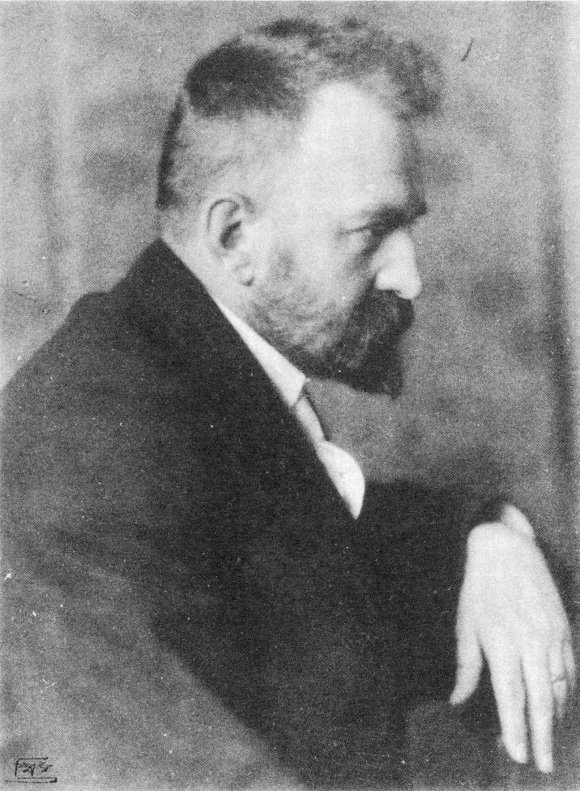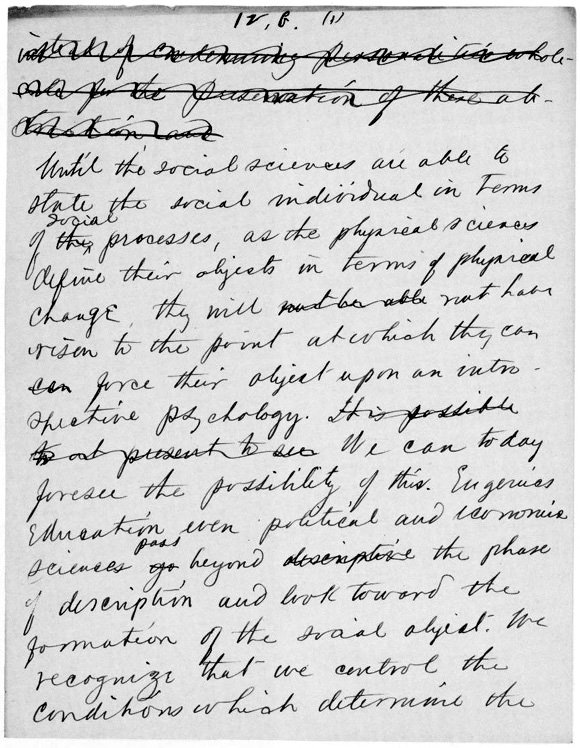George Herbert Mead (1863-1931): Philosophy
Raised in a conventional Christian home, Mead struggled during his years at Oberlin and Harvard with a loss of certainty as fundamental doubts about religion in general and Christianity in particular produced a personal spiritual crisis. He drifted in and out of a variety of occupations before settling at Harvard to study with Josiah Royce. There, Mead grew dissatisfied with the dominant speculative approach and its failure to engage the scientific and social problems that concerned him. Seeking a more realistically grounded philosophy, he left Harvard, eventually writing a dissertation at the University of Berlin. While in Germany, he not only studied philosophy, but also observed firsthand the growing Social-Democratic Labor movement, an experience that encouraged Mead's later involvement in American social reform.
Mead accepted a position at the University of Michigan in 1891 and struck up a friendship with another young philosophy professor - John Dewey. When William Rainey Harper invited Dewey to Chicago in 1894, one of the conditions Dewey laid down before accepting was that George Mead be given a position as well. Mead took the post offered to him and began a nearly forty-year career as a philosopher at Chicago.
Mead's philosophical approach grew out of his conviction that knowledge was not remotely removed from the immediate experiences of everyday life. The quest to integrate knowledge and experience became the hallmark of philosophy at the University of Chicago.
While at Chicago, Mead participated actively in a variety of local movements and social programs in the growing city. He was treasurer of Hull House, a member of the progressive City Club, and editor of the Elementary School Teacher.
When Robert Maynard Hutchins attempted to appoint Mortimer Adler to the philosophy department in 1931, Mead and four other philosophers created a nationwide stir when they resigned from the University. Convinced that Adler's appointment and his neoThomist approach represented a disturbing political and philosophical shift within the University of Chicago, an embittered Mead accepted a post at Columbia University. He died unexpectedly a few months later and never filled the new position.
After Mead's death, his son and daughter-in-law, Henry and Irene Tufts Mead, oversaw the compilation of unpublished manuscripts, lecture notes, and student notes. Published posthumously as a three-volume set, these books, Mind, Self and Society (1934), Movements of Thought in the Nineteenth Century (1936), and The Philosophy of the Act (1938), along with an edited version of his Carus lectures, The Philosophy of the Present (1932), form the main corpus of Mead's philosophical writings, which have had a distinctive influence upon recent American social science.

Mead's work moved easily from the most penetrating philosophical thinking to direct involvement with public discussion of education, social reform, and during World War I, American foreign policy.

Mead argued that the value of behavioral psychology was limited because it viewed humans as purely instinctual and reflexive beings. By ignoring the social dimension of human interaction, behaviorists had eliminated a critical factor in understanding the cognitive process.
